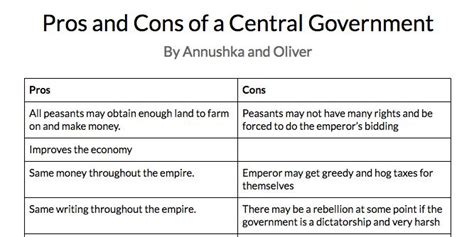Pros & Cons Of Government Jobs

Introduction
Government jobs are highly sought after due to their stability, benefits, and prestige. However, they also have their drawbacks. In this article, we will explore the pros and cons of government jobs, so you can make an informed decision about pursuing a career in this field.
Pros of Government Jobs
Stability
Government jobs are known for their stability. Unlike private sector jobs that are subject to market fluctuations, government jobs are secure and offer long-term employment. This is especially important during times of economic uncertainty.
Benefits
Government jobs typically offer excellent benefits, including health insurance, retirement plans, and paid time off. These benefits are often more generous than those offered by private sector employers.
Prestige
Working for the government can be prestigious, as it involves serving the public and making a difference in people’s lives. Government jobs are often held in high regard and can lead to a sense of fulfillment and purpose.
Job Security
Government jobs are generally secure, as layoffs are rare and employees are protected by unions and civil service rules. This provides peace of mind for those seeking a stable career path.
Opportunities for Advancement
Government jobs often offer opportunities for advancement, as well as professional development and training programs. This can lead to higher salaries and increased job satisfaction.
Cons of Government Jobs
Bureaucracy
Government jobs are often associated with bureaucracy, which can be frustrating and time-consuming. The hierarchical structure of government agencies can lead to slow decision-making and a lack of innovation.
Low Pay
Government jobs are not known for their high salaries. While benefits may be generous, the base pay for government employees is often lower than that of their private sector counterparts.
Limited Flexibility
Government jobs can be inflexible, with strict schedules and limited opportunities for telecommuting or flexible work arrangements. This can be challenging for those seeking a better work-life balance.
Political Interference
Government jobs can be subject to political interference, particularly in the executive and legislative branches. This can lead to a lack of autonomy and job insecurity for those working in these areas.
Slow Career Progression
Government jobs can be slow to offer promotions and career progression, particularly in large agencies. This can lead to a lack of motivation and job satisfaction for those seeking advancement.
Conclusion
Government jobs offer stability, benefits, and prestige, but they also have their drawbacks, such as bureaucracy, low pay, and limited flexibility. When considering a career in government, it is important to weigh the pros and cons and determine if it is the right fit for you.
FAQs
What is a government job?
A government job is a position within a federal, state, or local government agency. These jobs can range from administrative positions to law enforcement and everything in between.
What are the benefits of a government job?
Government jobs offer stability, benefits, prestige, job security, and opportunities for advancement.
What are the drawbacks of a government job?
The drawbacks of government jobs include bureaucracy, low pay, limited flexibility, political interference, and slow career progression.
How do I apply for a government job?
You can apply for government jobs through the official websites of federal, state, or local government agencies. You may need to take civil service exams or meet other qualifications to be considered.
